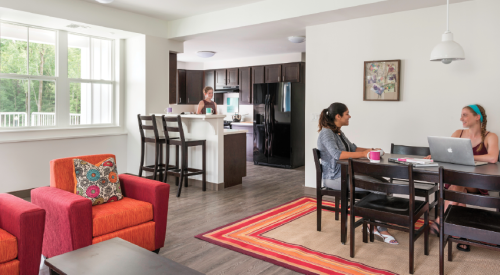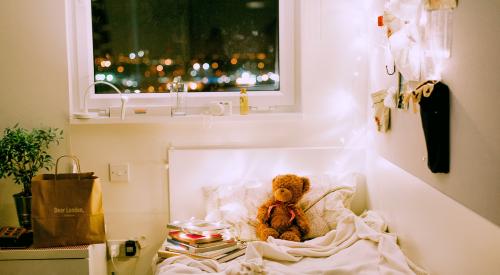An emergent trend on the rental housing market is communal living, or "co-living," driven by Millennials seeking affordable housing alternatives in booming, pricey job markets.
HubHaus is one such company that offers "cultural shared housing," for young adults in the Bay Area, along with exclusive events including Wine & Art nights and hiking adventures. Another company, Common, operates in the Bay Area, Chicago, and New York. Politico Magazine reports that about twelve companies in the U.S. have raised more than a combined $130 million to market and sell co-living housing since 2013. In contrast to traditional landlords, many co-living startups provide their renter-members a private room and the ability to transfer between rental properties.
Over the past decade, as millennials have flocked to large U.S. cities, they have seen wages lag behind the rising costs of living. Faced with credit-sapping student debt, Americans born between the early-1980s and mid-’90s have waited longer to get married, buy homes or have children. More likely to rent—and devote a higher portion of their paychecks to rent—millennials are also more likely to be socially isolated than past generations.













